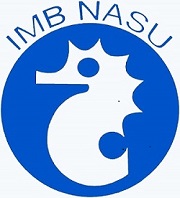Conflicts of interest
To ensure objectivity, neutrality and transparency in research and to ensure that accepted principles of ethical and professional conduct have been followed, authors and peer-reviewers participating in the manuscript submission stage should include information regarding sources of funding and potential conflicts of interest, financial or non-financial, – whether they actually had an influence. Submissions with undeclared conflicts that are later revealed may be rejected. Published articles may need to be re-assessed, have a corrigendum published, or in serious cases be retracted.
The types of the conflicts for the authors are:
- research grants from funding agencies. Please give the information about research funder and the grant number in the Acknowledgements part of the manuscript;
- honoraria for speaking at conference;
- financial support for attending conference;
- financial support for educational programs;
- employment or consultation;
- support from a project sponsor;
- position on advisory board or board of directors or other type of management relationships;
- multiple affiliations;
- financial relationships, for example equity ownership or investment interest;
- intellectual property rights (e.g. patents, copyrights and royalties from such rights);
- references to the “predatory” journals;
- holdings of spouse and/or children that may have financial interest in the work;
- personal relationships or competing interests directly or indirectly tied to this research;
- professional interests or personal beliefs that may influence your research.
The corresponding author must collect the conflict of interest (listed above) disclosure from all authors and declare them on behalf of all authors during manuscript submission stage. Declared conflicts of interest will be considered by the editor and reviewers.
"Marine Ecological Journal" intends to prevent from the conflict of interest assigning submissions to editors and inviting peer-reviewers. They should decline in any of the below situations occur and declare any conflicts to the journal.
The types of conflicts of interests for editors and peer-reviewers are:
- editors and/or peer-reviewers have a recent publication or current submission with any author of the manuscript;
- editors and/or peer-reviewers share or recently shared an affiliation with any author of the manuscript;
- editors and/or peer-reviewers collaborate or recently collaborated with any author of the manuscript;
- editors and/or peer-reviewers have a close personal connection to any author of the manuscript;
- editors and/or peer-reviewers have a financial interest in the subject of the work of the manuscript;
- editors and/or peer-reviewers feel unable to be objective for the manuscript.
Privacy Statement
The names and email addresses entered in this journal site will be used exclusively for the stated purposes of this journal and will not be made available for any other purpose or to any other party.
Data Privacy Policy.
The data collected from registered and non-registered users of this journal falls within the scope of the standard functioning of peer-reviewed journals. It includes information that makes communication possible for the editorial process.
This journal’s editorial team uses this data to guide its work in publishing and improving this journal. The data will not be sold by this journal nor will it be used for purposes other than those stated here.
Sponsors
It is published at the expense of the Institute of Marine Biology of the NAS of Ukraine.







